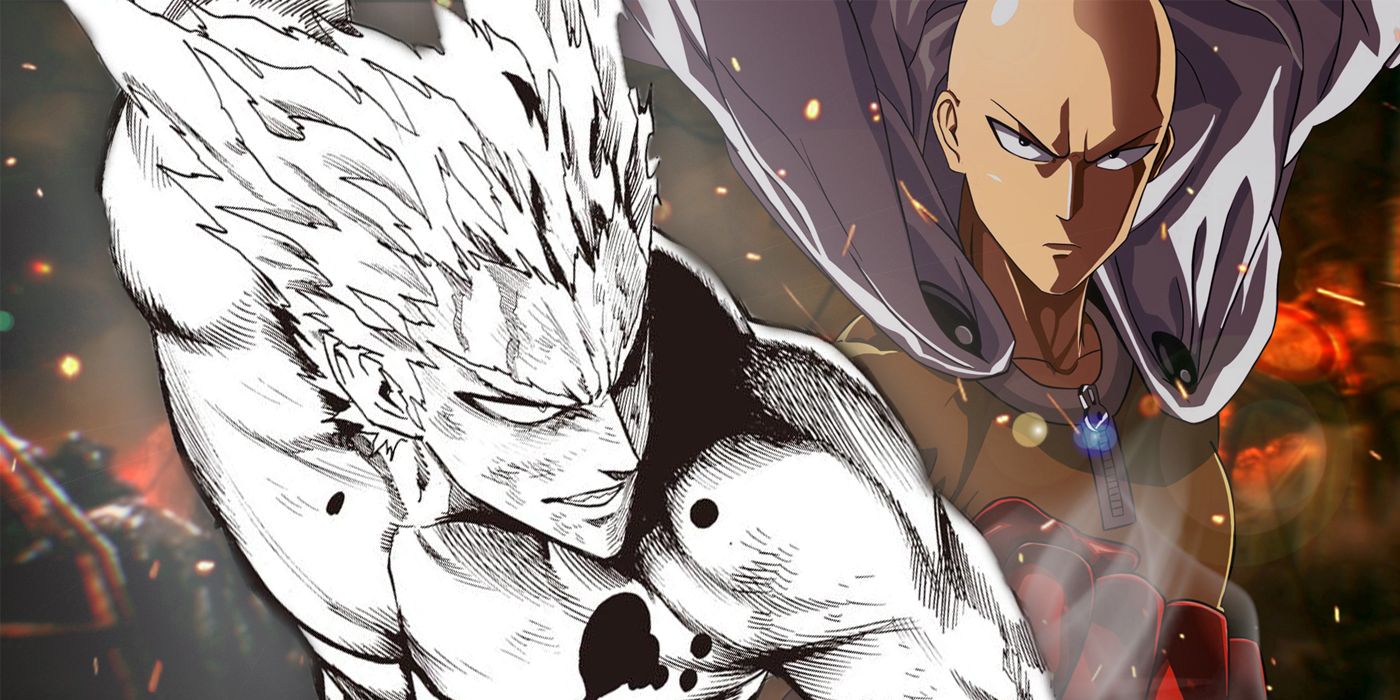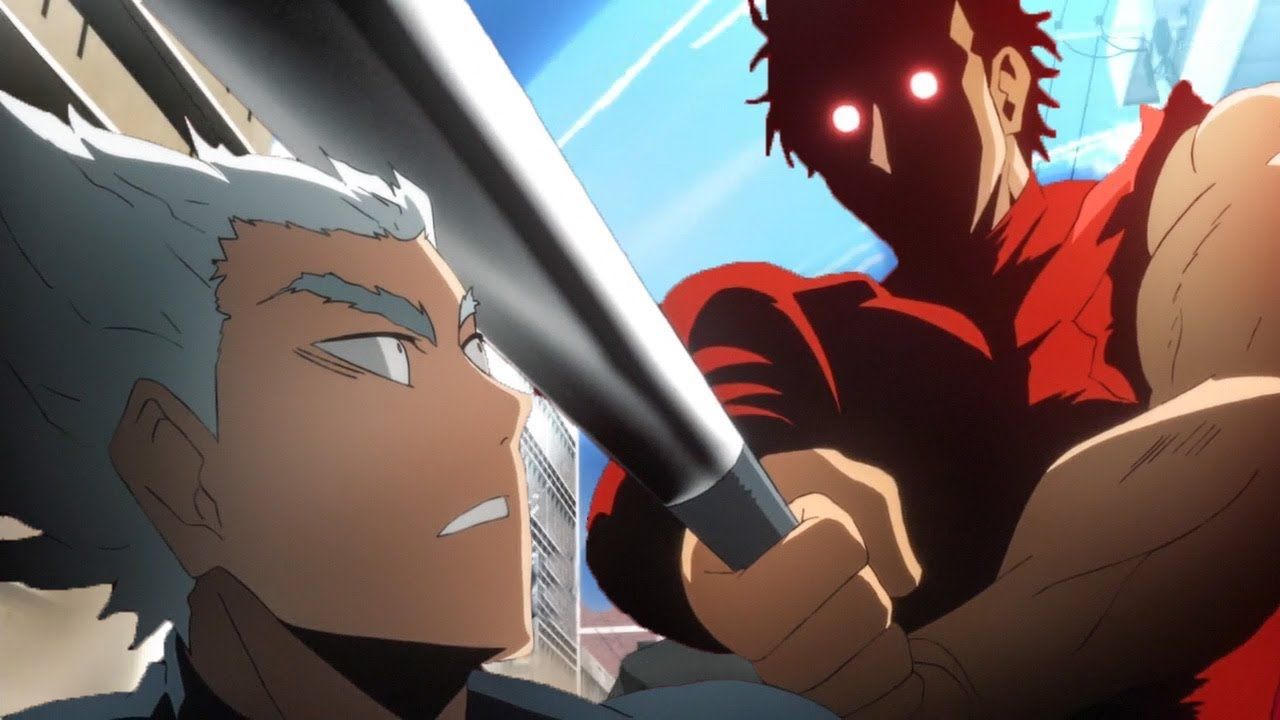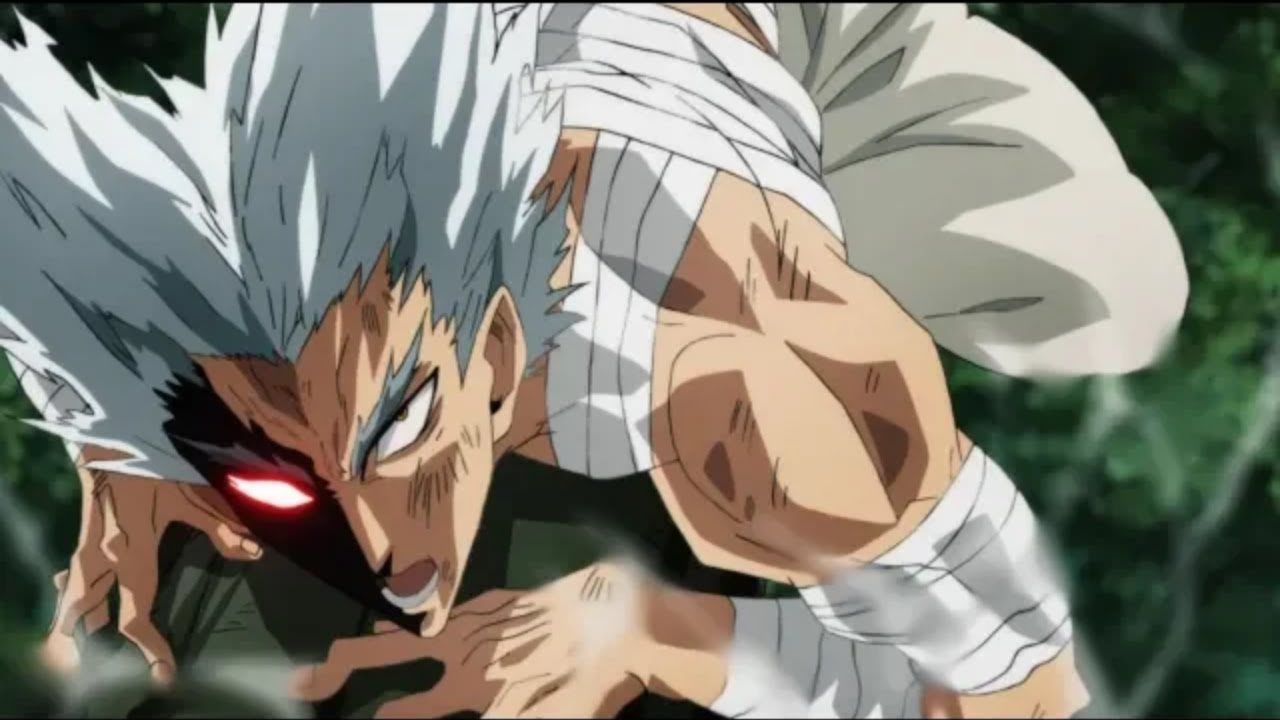
Of all the colorful heroes and villains introduced in the popular manga/anime franchise One-Punch Man, one of the most memorable has been Season 2's major antagonist, Garou. The self-proclaimed "human monster" spent the season hunting down superheroes and beating them within an inch of their lives to ensure the arrival of a prophesied monster apocalypse. While the villain's plot quickly ground to halt in the face of the series' protagonist Saitama, the hero hunter has one thing over his heroic nemesis: Garou is a much more fascinatingly developed character -- and we can prove it.

Through flashbacks over the course of Season 2, it is revealed that Garou had a deeply unhappy childhood, constantly teased and bullied by his peers and classmates as a boy. As the ostracized young Garou watched reports of superheroes defeating monsters on television, he grew to sympathize and identify with the monsters' plight as it mirrored his own; enduring bullying at the hands of popular classmates he compared to the superheroes.
Garou would attend a martial arts school and quickly become its star pupil before betraying his teachers and fellow students once he felt he had reached his true potential by unveiling a mission he had sworn to undertake since childhood: To track down and defeat superheroes to avenge the monsters he watched get destroyed regularly on television.
By comparison, Saitama was a normal civilian who noticed a boy being attacked by a giant crab monster named Crablante on the way home from a failed job interview. Beaten to a pulp, Saitama managed to defeat Crablante by the skin of his teeth and decided to dedicate the rest of his life to becoming a superhero.
To do this, Saitama undertook a training regimen that consisted of 100 pushups, 100 sit-ups, 100 squats and a 10K run every day. The workout routine caused Saitama to lose all his hair and noticeable facial features but he gained a ridiculous amount of superhuman strength, speed and endurance in an intentionally simplistic backstory.

While Garou quickly proved himself more than a match for many heroes that he encountered across his hunt, many times, the villain found himself on the verge of defeat -- if not losing outright. Garou's extensive training gave him blinding fast speed, superior hand-to-hand combat abilities and strength but, at the end of the day, he is still just a human. Garou has been outnumbered and only earned a victory through his quick-thinking, while a fight against Watchdog Man resulted in his defeat due to Garou being unable to predict his opponent's fighting style.
The one-note joke of One-Punch Man, upon which the entire anime series revolves around, is that Saitama is not physically challenged by any opponent he faces at all. He can withstand a massive barrage from a looming alien spacecraft or a mighty blow from a gargantuan opponent without suffering so much as a tiny scratch. And, to the anime's premise, any opponent Saitama faces is felled by a single blow.

For all his villainy and visible joy in hunting heroes, there is a surprising amount of complicated nuance to Garou. Season 2 had him befriend a similarly bullied young boy named Tareo and is shown to genuinely care for him as the season progresses. When Tareo is nearly caught in the crossfire of an attack, Garou becomes incredibly defensive of him. Despite sympathizing with monsters while growing up, Garou surprisingly turns down an initial offer by the Monster Association to join them, preferring to go his own way.
Saitama is really only motivated by his desire to finally encounter an opponent that can withstand more than one punch, usually playing video games in between training and his heroics to pass the time. Interestingly, Saitama struggles more with video games than he does in his actual superhero career while his inability to find a worthy opponent once led him to contemplate leaving behind his superhero persona altogether.
In essence, Garou is just far more fleshed-out, sympathetic and committed to a chosen cause than Saitama; a key difference that is likely deliberate given the comedic nature of One-Punch Man's central hero.



















